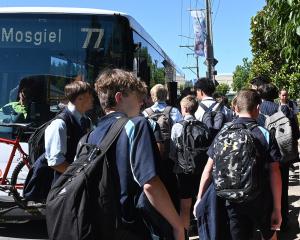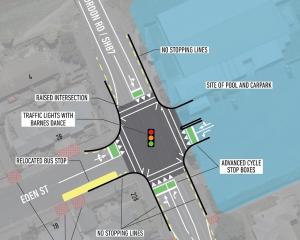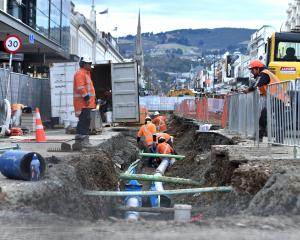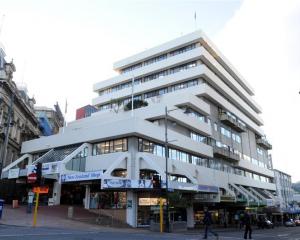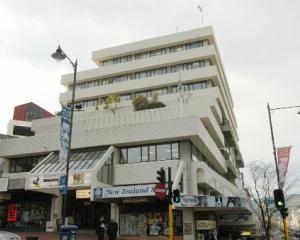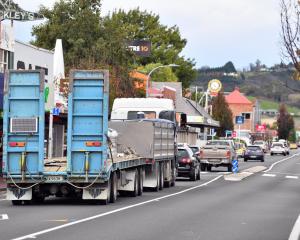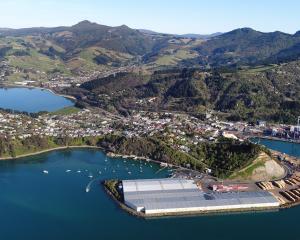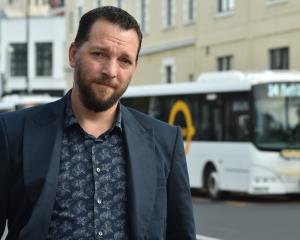Spiralling oil prices mean a radical rethink of Dunedin's public transport is needed, and the Dunedin City Council should take control of the network and consider new initiatives to boost patronage.
The calls came from submitter Phil Cole and several other groups at yesterday's second day of annual plan hearings, even as Grey Power Otago president Jo Millar warned a return to car-free days because of rising petrol prices could see the city "grind to a halt".
Mr Cole told councillors public transport would never work in Dunedin until the system met residents' needs.
That should begin with the council taking control of the network from the Otago Regional Council and then consulting residents about their needs for a new service.
Mr Cole lived in London for 25 years, and said by comparison Dunedin's public transport "just isn't there".
"Towns and cities around the world - some the size of Dunedin - have wonderful public transport systems that are well patronised by the public ... there is a desperate need for better solutions to our transportation problems here in Dunedin."
Effective public transport - together with cycleways and a pedestrian-friendly city - was essential for the city's future, given the rising cost of oil, he believed.
However, Dunedin's bus network lacked connectivity and convenience, and needed changes "immediately", he believed.
Existing bus routes had not changed over time to accommodate the growing number of cars in the city, meaning travel times on buses suffered, he believed.
Key features of a new service include making it more affordable than cars, and frequent enough to get people out of their cars, he said.
Some central city streets should also be cleared of cars, with only buses allowed in, to free up space and reduce bus travel times, he said.
Express services linking outlying areas like Mosgiel with the central city - but skipping stops in-between - should also be explored, he said.
Mr Cole's ideas were backed by Otago Girls' High School teacher Heike Cebulla-Elder, who urged the council to establish its own competitive bus service providing a cheaper alternative and encourage people to leave their cars at home.
The city council had more resources at its fingertips than the regional council, and ratepayers could support such a service even if - like the city's libraries or the Forsyth Barr Stadium - not all would use it, she said.
The council should also consider giving priority to buses by introducing bus lanes found in other cities, and promote car-free Sundays, she said.
Medical Students for Global Awareness spokesman Stefan Fairweather called for more work to develop public transport, cycling and walking facilities.
Students could be offered an annual pass for access to public transport during the academic year, which, at $50 a year, could generate $1 million in revenue, he said.
More emphasis on walking and cycling would also bring health benefits for the city's population, he said.
Sustainable Dunedin City co-chair Jocelyn Harris said the city was facing a "slow-moving earthquake" of rising petrol prices and other threats, such as sea level rise, and the city needed to do more to prepare.
That should include taking control of public transport and preparing a more effective, integrated transport system, perhaps including free cable cars running along George St, she said.
Port Chalmers Transition Town member Tina Grubba said rising petrol costs and a lack of public transport to and from the town meant people like her would be less likely to visit the central city in future, particularly at night when public transport was almost non-existent.
Her organisation also supported a more effective public transport system, with the city council taking control of the network, and a monthly bus pass system to encourage better bus patronage.
Luke Stewart, of Otago Campus Greens, also backed calls to take control of the transport network, while Grey Power Otago president Jo Millar urged the council to work "very, very hard" to make sure the ORC provided an effective bus service.
Mrs Millar said she still remembered the car-free days that resulted from the 1973 oil crisis, and warned councillors a repeat would have "a major effect on a lot of our people" - including Grey Power members.
"I remember carless days, and I'm telling you, if they come back this community is going to grind to a halt.
"Whatever involvement you have got with [public transport], would you please make sure you push them [ORC] to give us a decent service."


